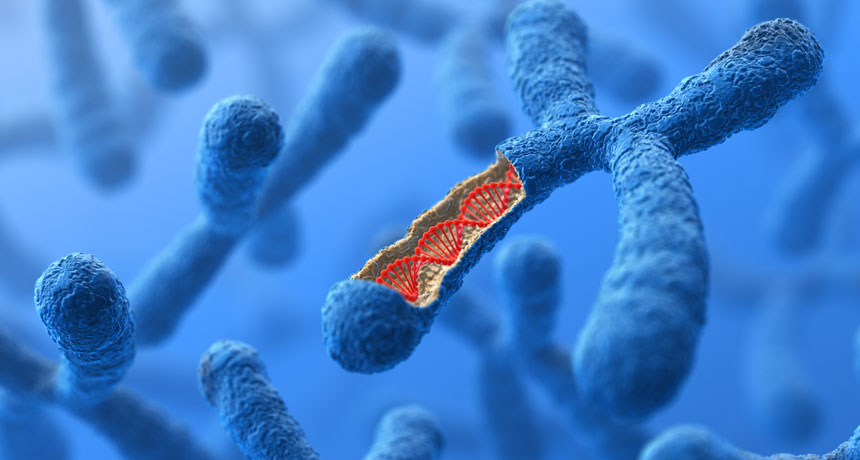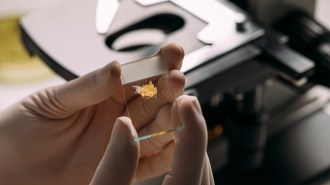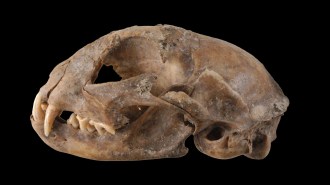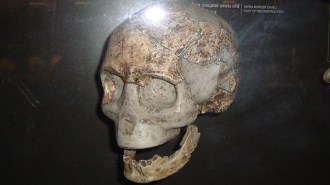
SEEING DOUBLE Some DNA is duplicated in humans. The copies may be responsible for some uniquely human traits and diseases.
BlackJack3D/iStockphoto
ORLANDO — Doubling up on some DNA may have helped make humans human — including giving us uniquely human diseases.
DNA that doesn’t produce proteins may be especially important for creating differences between humans and other primates, biochemist Paulina Carmona-Mora reported October 18 at the annual meeting of the American Society of Human Genetics.
Carmona-Mora and colleagues in Megan Dennis’ lab at the University of California, Davis identified parts of humans’ entire set of genetic instructions, or genome, that are duplicated in people but not in other primates. Many of those duplicated regions overlap parts of the genome implicated in many diseases and psychiatric disorders such as schizophrenia, Carmona-Mora said.
Dennis and other researchers have found that some genes duplicated only in humans are involved in brain development and may account for human’s bigger brains (SN: 3/21/15, p. 16; SN: 11/5/11, p. 9). Carmona-Mora concentrated on the space between genes — part of the genome once considered “junk DNA” because it doesn’t encode proteins. Far from being junk, it’s where molecular switches that help control gene activity are located. Carmona-Mora and colleagues found 80 regions where only humans have duplicated DNA. Each copy is 98 percent or more identical to the original copy. And some regions were copied more than once.
Such repetitive regions are usually ignored because they are so difficult to tell apart, says Rajiv McCoy, an evolutionary geneticist at Princeton University. Carmona-Mora and colleagues have preliminary evidence that there may be important biology going on in those overlooked regions, he said.
Within the duplicate regions, Carmona-Mora and her colleagues discovered many switches, known as enhancers, important for controlling activity of genes. Some enhancers appear to control genes both inside and outside the duplicated regions, she said. And the switches can either increase or decrease the activity of the genes they regulate.
For instance, the researchers found that an immune system gene called DUSP22A on chromosome 6 was duplicated, but its copy, DUSP22B, is located on chromosome 16. Carmona-Mora found many enhancers thought to control DUSP22A’s activity may actually govern the B copy. The duplicate can come in two to five copies, and people can differ in the numbers of copies they carry. The consequences of the multiple copies aren’t known either.
Another doubled-up region contains enhancers that turn on some genes in the cerebellum, a part of the brain that coordinates movement, speech and performs other important functions. The researchers don’t yet know all of the genes the enhancers may control.
Some evidence hints that duplicate enhancers may help control genes important in other parts of the brain. Deletions that remove some of these enhancers have been linked to schizophrenia, autism, intellectual disability and other disorders involving the brain, Carmona-Mora said.
“What makes us human also makes us prone to disease,” she said.
The reason is that duplicating DNA can make the genome more fragile in the duplicated region, McCoy says. Repetitive DNA can form loops that get cut out of the genome, removing the original DNA and the copies.







